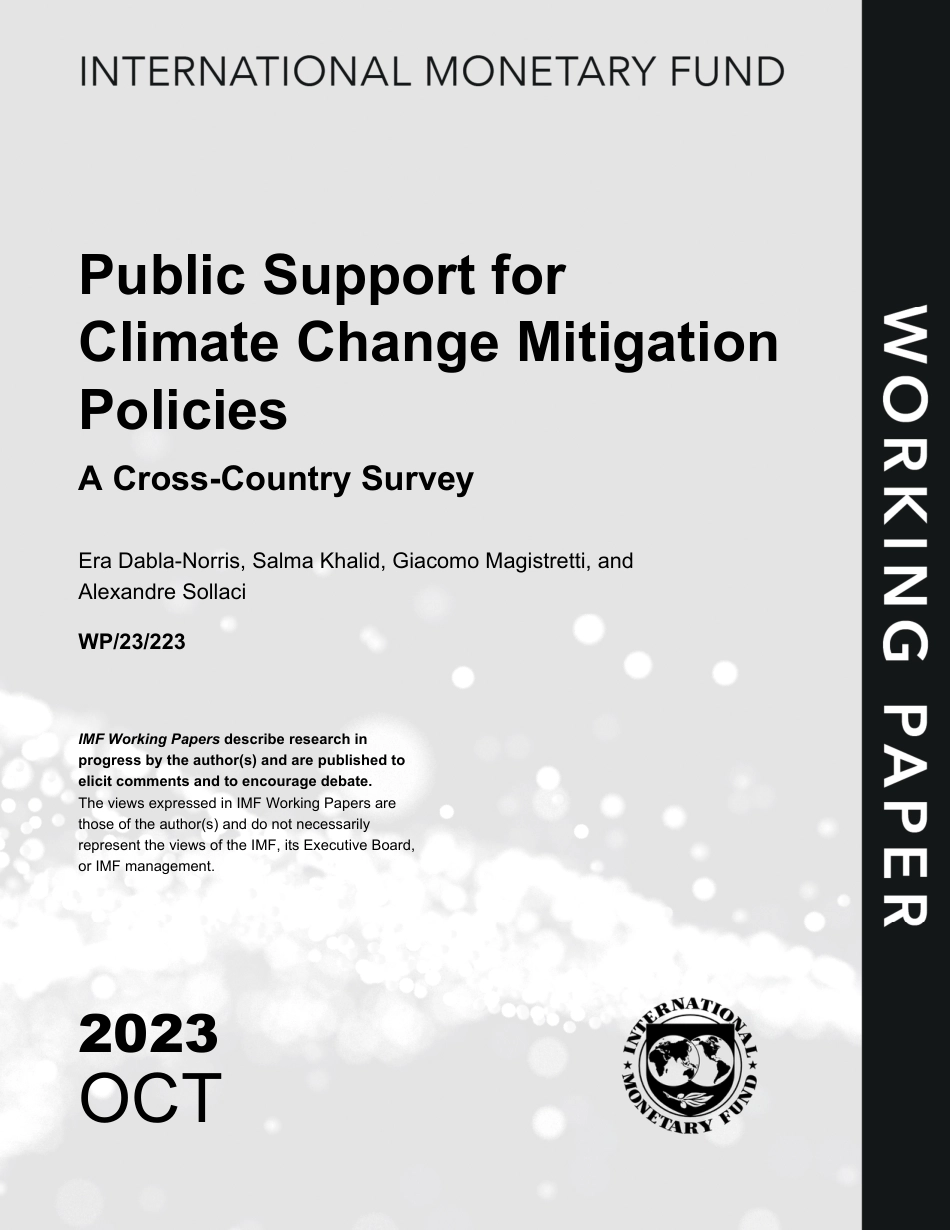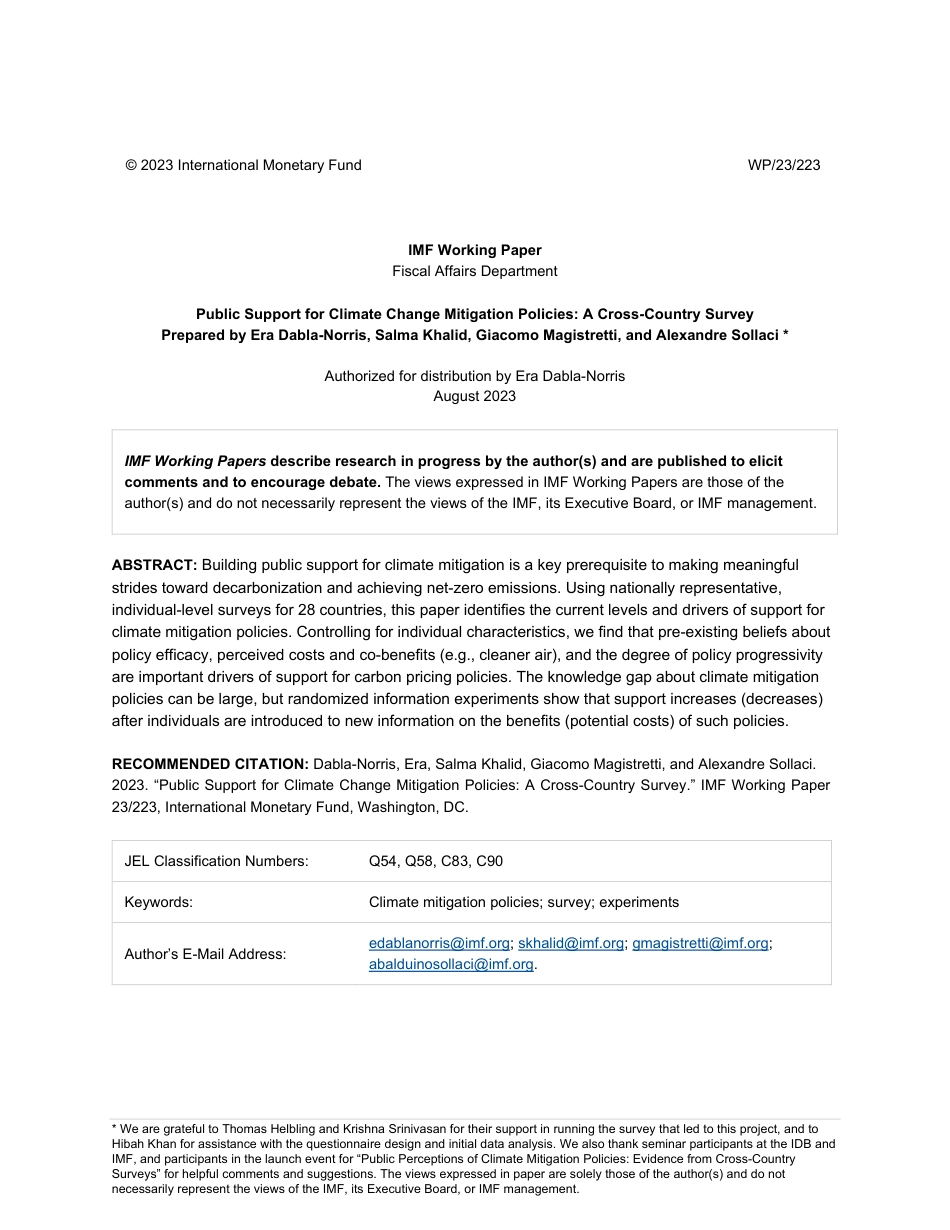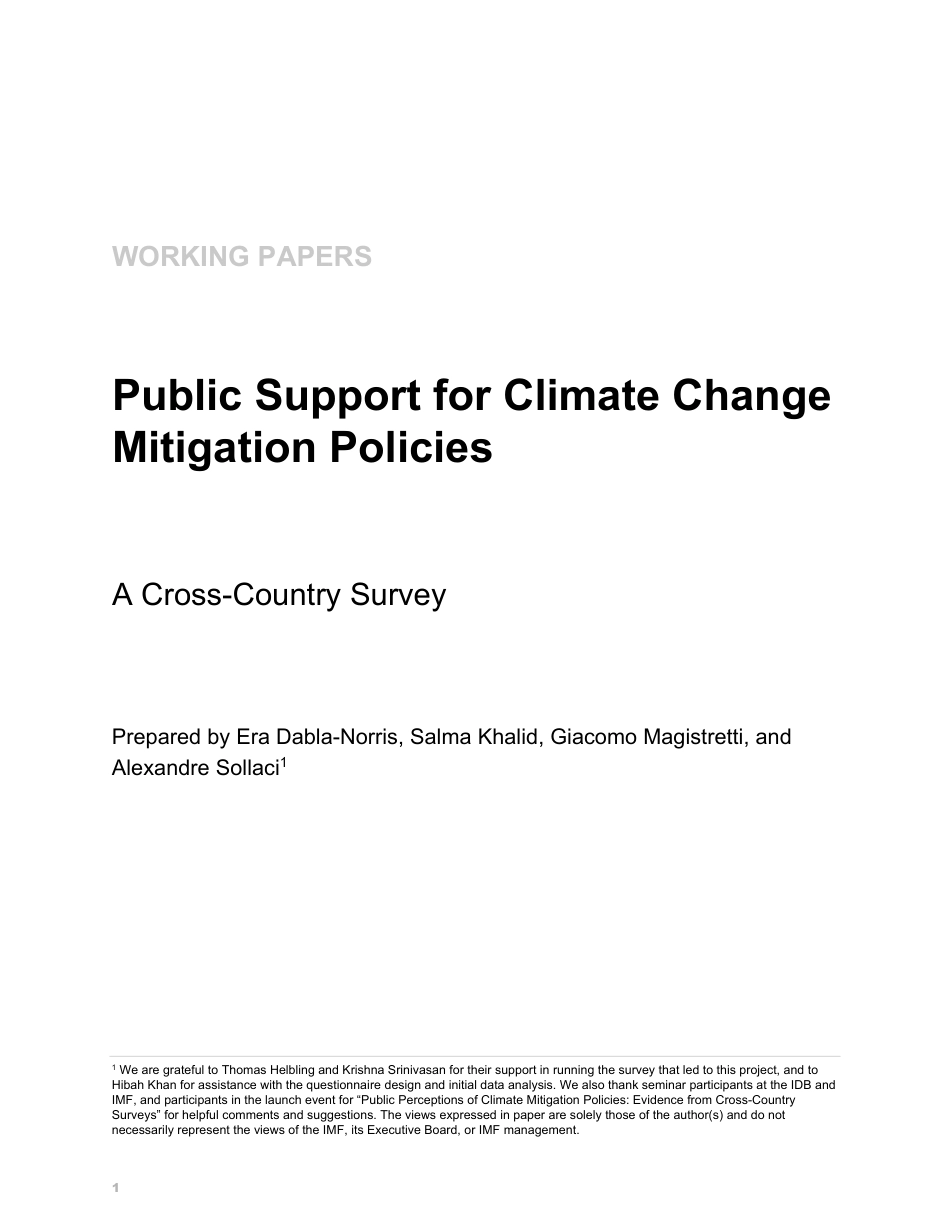2023 OCT Public Support for Climate Change Mitigation Policies A Cross-Country Survey Era Dabla-Norris, Salma Khalid, Giacomo Magistretti, and Alexandre Sollaci WP/23/223 IMF Working Papers describe research in progress by the author(s) and are published to elicit comments and to encourage debate. The views expressed in IMF Working Papers are those of the author(s) and do not necessarily represent the views of the IMF, its Executive Board, or IMF management. * We are grateful to Thomas Helbling and Krishna Srinivasan for their support in running the survey that led to this project, and toHibah Khan for assistance with the questionnaire design and initial data analysis. We also thank seminar participants at the IDB andIMF, and participants in the launch event for “Public Perceptions of Climate Mitigation Policies: Evidence from Cross-CountrySurveys” for helpful comments and suggestions. The views expressed in paper are solely those of the author(s) and do notnecessarily represent the views of the IMF, its Executive Board, or IMF management.© 2023 International Monetary Fund WP/23/223IMF Working Paper Fiscal Affairs Department Public Support for Climate Change Mitigation Policies: A Cross-Country Survey Prepared by Era Dabla-Norris, Salma Khalid, Giacomo Magistretti, and Alexandre Sollaci * Authorized for distribution by Era Dabla-Norris August 2023 IMF Working Papers describe research in progress by the author(s) and are published to elicit comments and to encourage debate. The views expressed in IMF Working Papers are those of the author(s) and do not necessarily represent the views of the IMF, its Executive Board, or IMF management. ABSTRACT: Building public support for climate mitigation is a key prerequ...



